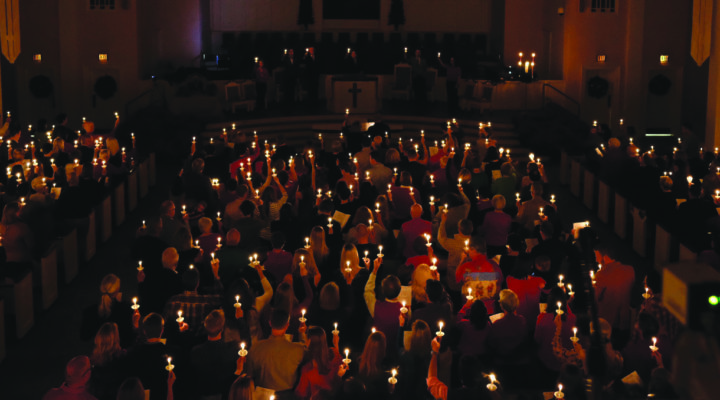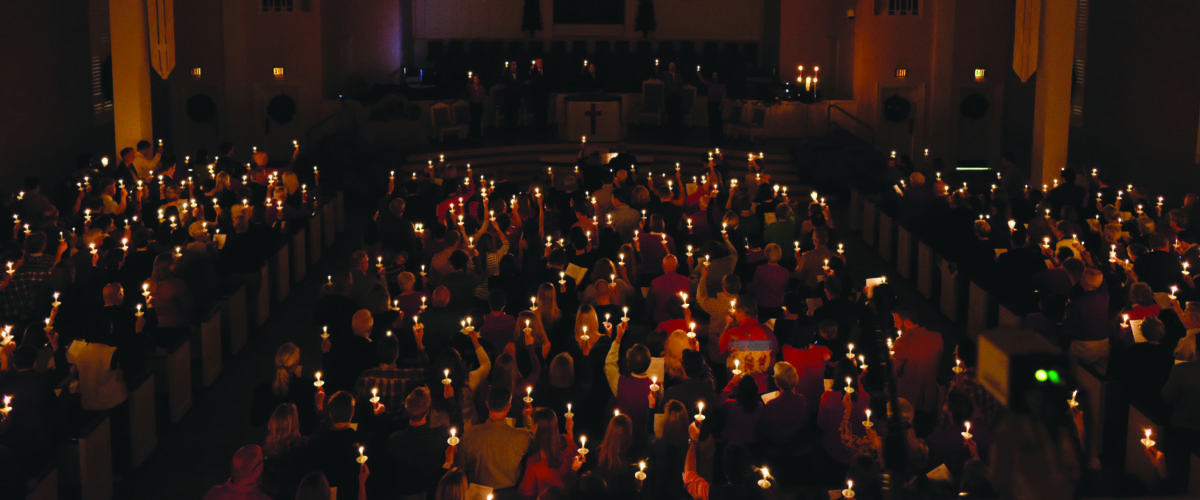I’ve heard all the arguments and understand most of the data. Yes, I know there are regional differences and special circumstances from community to community. And I understand that you think your bubble is safe, that you are the exception.
Here’s the truth: You are not safe, and your church is not safe. It’s time for every responsible church in America to cancel in-person, indoor Christmas Eve services. That includes you.
 There is no place in America that is safe from the viral spread of COVID-19 right now. Nowhere. And even though the first vaccine is being rolled out — thank God for that! — we are a long way from vaccines stopping this thing from spreading. Months away.
There is no place in America that is safe from the viral spread of COVID-19 right now. Nowhere. And even though the first vaccine is being rolled out — thank God for that! — we are a long way from vaccines stopping this thing from spreading. Months away.
Every day my social media feed is increasingly filled with news of friends and friends of friends who are falling ill and sometimes dying. A member of my Sunday school class has been in the hospital for two weeks now struggling to survive a coronavirus infection that spread at her workplace and then got shared with family at Thanksgiving. Other friends are burying parents and siblings who have died of coronavirus.
Within the last two weeks, I’ve learned of several larger churches in our area that had reopened — with varying health protocols — and now have had to close because the virus began spreading among the church staff, who in turn infected members of the congregation.
And then there’s yet another story of a maskless, distanceless church that put on its usual full-scale Christmas music program last week, resulting in multiple members of the choir and orchestra being infected. A friend who had been asked to pray for these folks as they fell ill told me he had a hard time doing so because he knew the unnecessary risk they had taken to participate in a Christmas music program.
Here are four reasons your church should cancel any in-person indoor Christmas Eve services right now:
It’s the reasonable thing to do. We all have a great capacity as humans to justify doing whatever we want to do, reason be damned. This has been the case as churches nationwide have reopened more than they should have. The justifications are multitudinous: We can be safer; we don’t have as much risk; we’ll practice social distancing; we don’t believe all the hype; it is more important to worship God in a physical space than to protect human life.
OK, no one probably has said that last one out loud, but it’s the net effect of the decision. If every “pro-life” pastor in America would associate public health as a “pro-life” issue, we wouldn’t be in the mess we find ourselves in right now.
“This Christmas Eve, it’s time to stop justifying ourselves and act with reason.”
This Christmas Eve, it’s time to stop justifying ourselves and act with reason. The facts are well-known, and the data are clear. Reasonable people respond to such facts with reasonable decisions.
It’s the responsible thing to do. Every study of the ways COVID-19 spreads in communities lists churches as key areas of concern. This is not debatable; it is fact. The reasons are simple: Lots of people in close proximity (even with social distancing) in a closed room with poor ventilation opening their mouths to sing and speak, finding it hard to resist the temptation to hug or stand close together and catch up.
We need to stop with the false comparison of churches to shopping malls and grocery stores and liquor stores and tattoo parlors. Church does not operate like any of these other enterprises. It may be fair to suggest that other businesses should close to protect public health, but the fact that they have not gives no justification for churches to stay open. This is not a competition.
Church leaders must make responsible decisions based on risk factors about churches, not based on whether someone else is being allowed to do what you know you shouldn’t.
“Christmas Eve worship poses a uniquely higher risk than even normal worship services.”
Christmas Eve worship poses a uniquely higher risk than even normal worship services because of the mix of people who show up: Out-of-town family, extended family, guests you’ve never met before. All huddled in a single room singing Christmas carols.
It’s the missional thing to do. Most of our churches claim to care about their communities. Most of our churches claim to be “on mission” to serve and save the people who live around them. Thus the birth of the overused word “missional.”
In this mindset, churches typically seek to bring healing, not to inflict pain or sow discord. Which is why the “missional” response to this moment is to lock the physical doors of the church and open the virtual doors wider.
You will be a better witness to your community by your example of caring about public health. That is what it means to be missional.
It’s the Jesus thing to do. How many times must we repeat the admonition of Jesus to “love your neighbor as yourself?” It seems like we need to make T-shirts and bumper stickers and refrigerator magnets to remind us every day.
Many of our churches — mine included — have remained closed for in-person worship because we have determined not to reopen until everyone can worship together and the church doesn’t have to play favorites among who can attend and who can’t. This is a noble sentiment. But that alone is not sufficient to convince most churches to stop meeting in person.
Given the current level of viral spread of coronavirus and the known facts about churches as incubators, the answer to the question “What Would Jesus Do?” is clear: Stop trying to justify yourself and put the interest of your community first.
It’s not that there aren’t alternatives to the high-risk indoor, in-person service. Consider a drive-in service, an outdoor service, creative virtual services.
“Which image will your church be known for this year?”
If I still haven’t gotten through to you, consider this reminder from many traditional Christmas Eve services: Envision what happens when at the end of a service in a dark room, the Christ Candle from an Advent wreath is used to light a few other candles then carried into the congregation, where one by one hand-held candles for every worshiper are lit, creating a beautiful visual of peace and hope.
That’s pretty much the same way this virus spreads; only it’s harder to light those little candles than it is to spread coronavirus.
Which image will your church be known for this year? Being a selfless light to the community or spreading the darkness of disease? Only one of those choices brings joy to the world.
Mark Wingfield serves as executive director and publisher of Baptist News Global.


